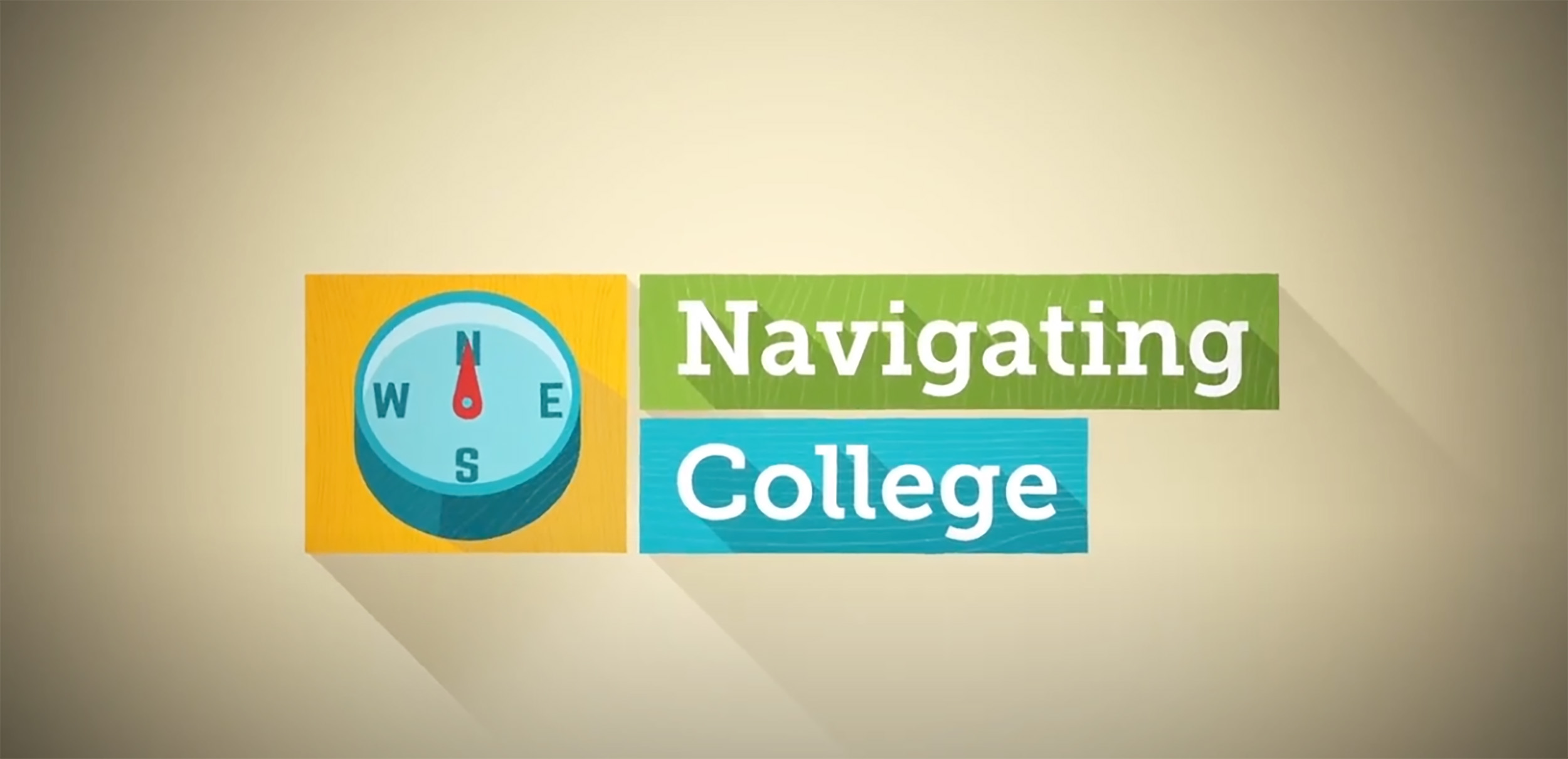Transitioning to College
The transition to college comes with a mix of both excitement and worry. We have put together resources that will help you with this transition including tips on how to take care of your mental health in times of uncertainty. We understand this can be a stressful and challenging time, but we are here for you and invite you to reach out to us for support. We recommend that if you are dealing with a personal challenge, to reach out sooner rather than later. We are so glad you have chosen Arcadia and look forward to working with you and to providing counseling support for first year students.
Vector Solutions
Get Inclusive launches on 8/1/25. All first year students are required to complete this program! Look for your email and complete the AOD for Undergrads and Voices for Change Programs. Due: August 20, 2025.
Medication Refills
Make sure that you have a few months supply of your prescription while on campus this semester. Avoid running out of medication before you are able to return to your provider at break.
Support System Plan
Identify your support system and talk with them about how you plan to stay in touch this semester. Finding the right balance between connection to home and connection at Arcadia can be challenging and look different for everyone.
Practice Self Care
Make an extra effort to take care of yourself, including making time to rest, eat balanced meals, exercise, and avoid abuse of alcohol or other drugs. Develop a manageable schedule, including identifying your optimal place and time of day to study.
Realistic Expectations
Give yourself some time to adjust. Recognize that relationships take time to develop (e.g. most students’ friendships from home formed over a period of years), and that your surroundings will become more familiar over time.
Transition to College Resources
Arcadia University is a Jed Campus.
Set to Go Jed Program, Helping Students with the Transition to College
Changes to Expect in the First Year of College
Increased Personal Freedom
Many students welcome the freedom to make their own decisions about what they want to do each day while in college. Others may find this level of freedom to be strangely unfamiliar or difficult. First-year students who live on campus may maintain daily or frequent contact with family by way of phone or computer, but they make many more personal decisions and choices than they did in high school.
Increased Responsibility
Along with an increase in personal freedom is greater responsibility for one’s daily schedule. Students must make choices about when and how to study, socialize with new acquaintances, become involved in activities, budget money, exercise, and make time to eat and sleep. They are faced with the challenge of learning how to balance going to class, participating in activities, completing schoolwork on time, taking basic care of oneself, and having fun as well. Students are faced, often for the first time, with the need to take more initiative to address responsibilities (e.g. scheduling classes, buying personal items, making appointments to take care of health needs, asking professors and staff for assistance or help).
Managing Time
First-year students typically experience changing demands on their time. Days are less routine and predictable. Some may feel they have virtually no time for themselves because of the time and energy needed to manage multiple obligations. College classes may seem difficult and draining, and/or may involve more hours of studying. However, other students may find the academic workload manageable, but then feel they have too much free time that isn’t relaxing or comfortable.
Different Surroundings and Relationships at College
First-year students have to adjust to new surroundings, and relate to unfamiliar people. Other students often seem very different from family, friends and acquaintances from home. Those who live away from home typically have to learn to relate to and negotiate conflicts with new roommates. There may be the hope that one’s roommate will be a close friend, and it can be disappointing when this kind of relationship does not develop. First-year students also experience new expectations from adults at college. For example, professors typically do not call if a class is missed, but will likely grade for attendance. In college, there is usually less interaction between parents and the school, and students are faced with the need to work out problems or concerns directly with professors, Residence Life, etc.
Changing Relationships with Family and Friends From Home
As students experience more freedom and responsibility in college, relationships with parents and other significant people change. Students, as well as their parents, may fear losing aspects of their relationship with each other. Frequent calls home from first-year students are common, especially during the first few months away at college. It may be very hard to say goodbye at the end of holiday or semester breaks. It may also be difficult to re-adjust to rules at home, such as curfews, chores or responsibilities for younger siblings. It is important to point out that parents also need to adjust during this period. They are dealing with their child becoming more independent in some ways, but still needing them too.
Many students leave high school boyfriends or girlfriends when they go to college. There may be disagreement about whether it is ok to make new friends or see other people. One, or both, partners may struggle with feeling lonely, sad, or jealous, especially if the other partner seems to be happier and adjusting better.
First-year students may also find that their relationships with friends from home are different after the time away at school. Some individuals feel closer and more appreciative of friends at home, and may stay very connected to them. Other students find they have less in common with friends from home after being away at school, or may be hurt by a friend becoming distant with them after high school.
What do I do if I’m not happy at college?
It is a common cliché that “the college years are the best years of your life.” If you are a first-year student who is feeling upset and miserable, this can be a very confusing and scary expectation. It is important to remember that it is normal to feel sad and scared during the first several weeks of college. You are in a new, demanding environment and everything is different. You may feel like you are expected to “grow up” all at once, and this may feel depressing or even overwhelming. You may feel far away from the people who usually are there to love and support you. Or, perhaps you are a student who does not feel “homesick” per se, but feels disappointed in the people you are meeting or the lack of reciprocity by others in initiating activities or friendships. If you are a first-year student who is distressed, you may see other students seeming happy and optimistic. But it may surprise you to hear that lots of other new students are scared and sad, even if they don’t obviously show it or admit it.
If you are struggling with the transition to college, there are some things you can do to help yourself make the adjustment:
- Reach out to others in your dorm. You are likely to find that you are not the only one who is sad and upset. Your R.A. is a good resource to talk to and to help you figure out how to cope. Upperclassmen may also be eager to share with you experiences of their own difficulty adjusting to college life during their first year.
- Join campus organizations and clubs that appeal to you. These activities do not have to be a perfect match for you, but can still help you to meet and interact with others who share similar interests and/or may also be looking to meet friends outside the dorm environment.
- Make an extra effort to take care of yourself, including making time to rest, eat balanced meals, exercise and avoid abuse of alcohol or other drugs. Try to develop a manageable schedule, including identifying your optimal place and time in the day to study.
- Adjust your expectations if things are not working out as you planned. For example, your roommate might not be your best friend. You may need to initiate conversations about conflict over personal space and living habits. Try to give yourself some time to adjust. Recognize that relationships take time to develop (e.g. most students’ friendships from home formed over a period of years), and that your surroundings will become more familiar over time.
- Seek out resources on campus that can help you address problems and get support, both academically and personally.
Villanova University (2015). Adjusting to College. Retrieved from https://www1.villanova.edu/villanova/studentlife/counselingcenter/infosheets/adjusting.html.
First-year students beginning college usually have expectations about college life long before actually leaving home. Some students look forward to college, and are eager to experience more freedom and adventure. Other individuals may be enthusiastic about college initially, but then discover that the actual experience falls short of their expectations. They don’t feel happy, comfortable, or secure in their new environment. In addition, there are some students who know that leaving home will be difficult and, therefore, dread the thought of packing and going to college.
Conversations with Friends
Mini clips from the Ad Council's youtube channel that helps provide tips for young adults to talk about mental health with peer's.
Your First Year: College Students Share Advice

Mental Health and Friendship

Navigating College, Protect Your Mental Health


